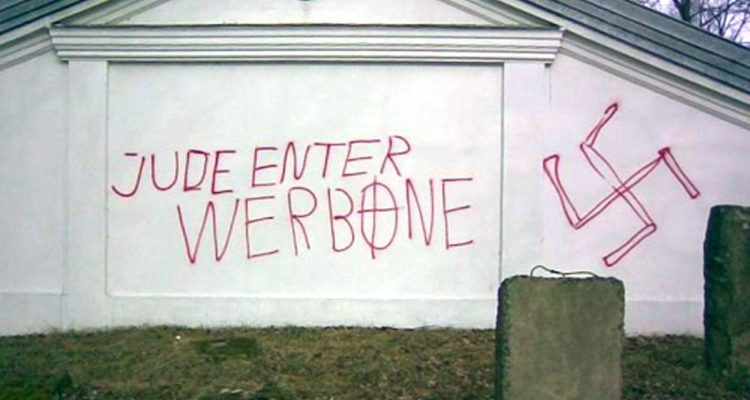A lack of consistent reporting is hiding the true number of hate crimes globally.
The Organization for Security and Cooperation in Europe (OSCE) has called for more a more comprehensive approach to recording hate crimes, warning many are going unreported and unaddressed.
The warning follows the publication of OSCE’s annual hate crime report, released by the OSCE Office for Democratic Institutions and Human Rights (ODIHR) to coincide with International Day of Tolerance.
Some 42 OSCE states, including the United Kingdom, France, Germany, Canada, the USA and Ukraine, submitted official stats on hate crimes in their countries. But the ODIHR said that much of the data was based on inadequate or insufficient recording mechanisms, which doesn’t allow the motivation of the crime to be accurately noted.
“Approximately 25 percent of OSCE countries consistently fail to meet their basic commitment to reporting hate crime data to ODIHR,” the ODHIR said in a statement.
The lack of consistency also means that many incidences are potentially going unreported.
For example, 17 countries reported antisemitic hate crimes in 2019, while incidents were reported on a further 29 states that year. In total, 2021 antisemitic incidents were recorded, including 749 attacks against people and 980 attacks on property in 2019.
But in 2020, Croatia, Lithuania and Norway failed to report, while Canada and Greece, which had not submitted a report in 2019, did so, bringing the total number of reporting countries to 16. Reports were also made on a further 28 states.
This means that the total number of captured incidents last year – amounting to 2316 – although higher than the previous year’s figures is unlikely to be a true picture of the number of antisemitic hate crimes experienced across the OSCE countries. Potentially, the victims of these invisible crimes are not receiving justice as a result.
“Hate crime is a human rights abuse,” said ODIHR Director Matteo Mecacci. “While I congratulate the many states that have undertaken concrete steps to tackle hate crimes, most of them still remain unreported, unrecorded and unprosecuted, leaving victims without support or redress.”
In addition to more comprehensive reporting, the ODIHR has called on countries to do more to raise awareness of the damage hate crimes can do, making individuals and communities feel persecuted and under threat. The organization wants to see better victim support systems for victims.
“It is important to understand that a lack of official hate crime data does not indicate there is no hate crime, but rather that these crimes are currently not recognized or recorded by law enforcement,” a spokesperson for OIDHR said in a statement.
(World Israel News).
